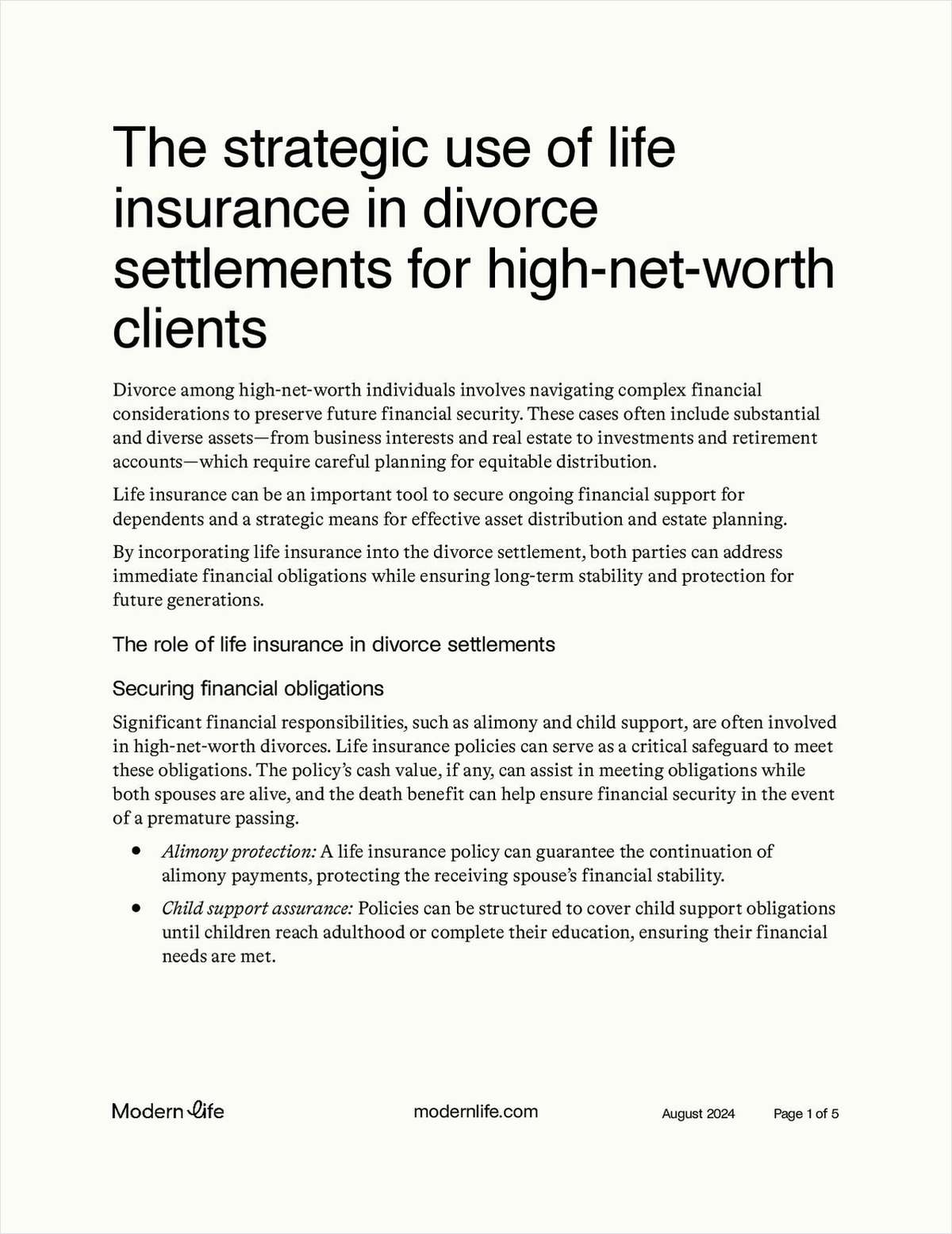With its profusion of new growth, warmth, and color, spring tends to lighten people's spirits and foster a sense of optimism about the future. But for many of us, prolonged danger and uncertainty make it hard to hang onto hope. And if someone has suffered a recent loss or trauma, their despair and loneliness can actually deepen amid all this evidence of the glory of creation.
If you or any of your clients have ever been tempted to give up hope, here are some ways to regain a more balanced outlook.
To raise flagging spirits and morale, I gave everyone in my small planning firm a raise several months ago. As far as I can tell, it hasn't helped a bit. What else can I do to help promote a sense of togetherness and positive thinking while we wait for good economic times to return? Financial rewards are an important sign of appreciation and confidence, but it usually takes more than that to improve morale and build esprit de corps at a time of organizational stress.
Have you considered taking steps to encourage better personal connections? For example, you might sponsor a company softball team or host a picnic for your employees and their families. Another option would be to hold regular staff lunches or dinners where people can schmooze about themselves and about the world at large, while learning more about each other. I'm also a proponent of regular staff retreats with an outside facilitator. They can be excellent opportunities to "breathe air into the system" by helping workers identify unmet needs and wants, correct unbalanced interpersonal dynamics, and share personal information that may help everyone feel more connected. You might even institute a sabbatical policy, allowing workers to recharge themselves for three months to a year.
Any of these ideas will help your employees feel more appreciated, acknowledged, and connected. You don't have to use all of them; one or two may be all it takes to make a big difference.
Several months ago a client of mine buried her 18-year-old son, who was murdered during a robbery. She was in the midst of estate planning then, and of course everything came to a halt. It's more important than ever that she make financial provisions for her two surviving children, but every time I talk with her she seems so dispirited that I can't bear to bring up the subject. What should I do? A wonderful article about hope written by Yvonne Dolan, a trauma therapist, in Psychotherapy Networker provides a wise perspective that may help answer your question.
It's absolutely fine to allow your client to talk about her loss and pain, if she needs and wants to. But I wouldn't invite this, because focusing excessively on grief can sometimes lead people to seclude themselves at home for days or weeks, crying and unable to function.
Instead, I would try to make her more aware of her coping strategies. Ask her, "What helps you get through the day?" According to Dolan, one woman found that making a list of each day's chores and activities helped her keep on keeping on. You might suggest to your client that a daily routine is often a comfort in times of loss. Whether it's going to a job or volunteer activity, walking at lunchtime every day, or taking a class at the health club, regular habits can help provide needed structure in a life that feels shattered.
Also, try to find out what healing resources she has to draw on. If you think it's appropriate, you might gently suggest that she seek a grief group, get together with friends, or reach out to her spiritual community, temple, or church.
Don't attempt to broach financial topics unless you get clear signs that she is ready and able to focus on them. Until then, keep checking in with her periodically to see if the time is right to move ahead with her estate planning agenda. Remember, mourning takes a long time. A year or more is not unusual, especially when someone has suffered a loss as unexpected and traumatic as your client has. Only when she begins to reembrace the small pleasures of living will she be able to find her way back to hope.
One of my clients is so pessimistic about the stock market's long-term prospects that he wants me to liquidate all the growth funds in his IRA and buy government bonds. Since he's only in his 40s, I feel this would be a shortsighted move. How can I restore his confidence in the future? You can't sell him on a more upbeat view of the stock market until he's ready to hear it. So be sure to acknowledge his feelings of disappointment and distress about his shrunken IRA, and remind him of advice you gave him that kept him from losing as much as many others did. (I hope this is the case.) Once he feels that you fully understand his loss, you can try to restore his sense of perspective by showing how this bear market compares to earlier ones, and how patient investors eventually benefited from market rallies.



